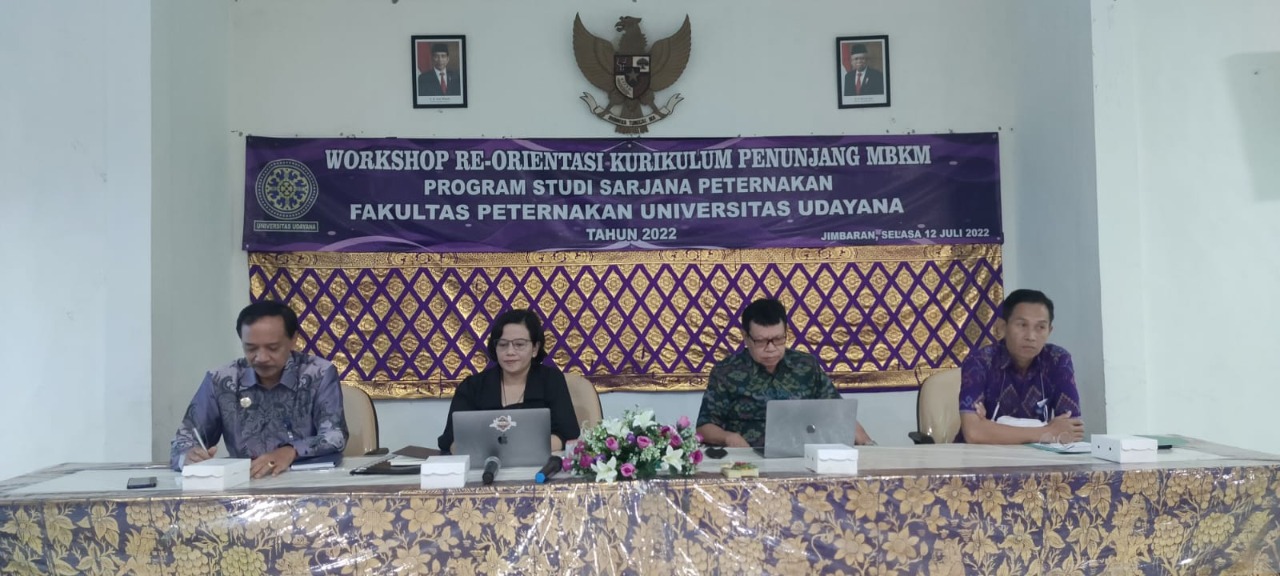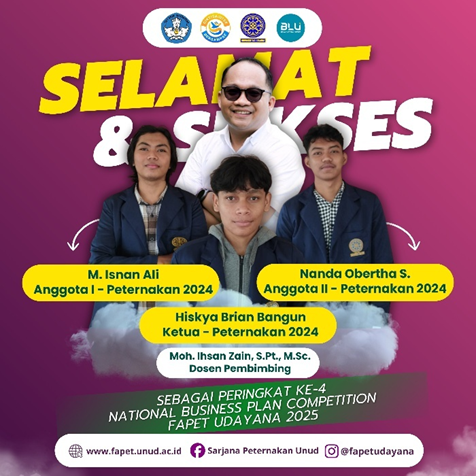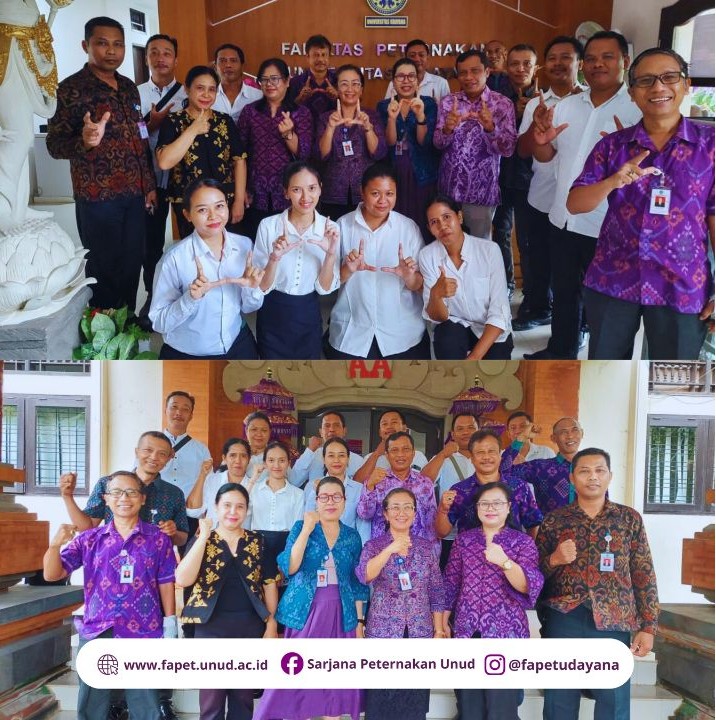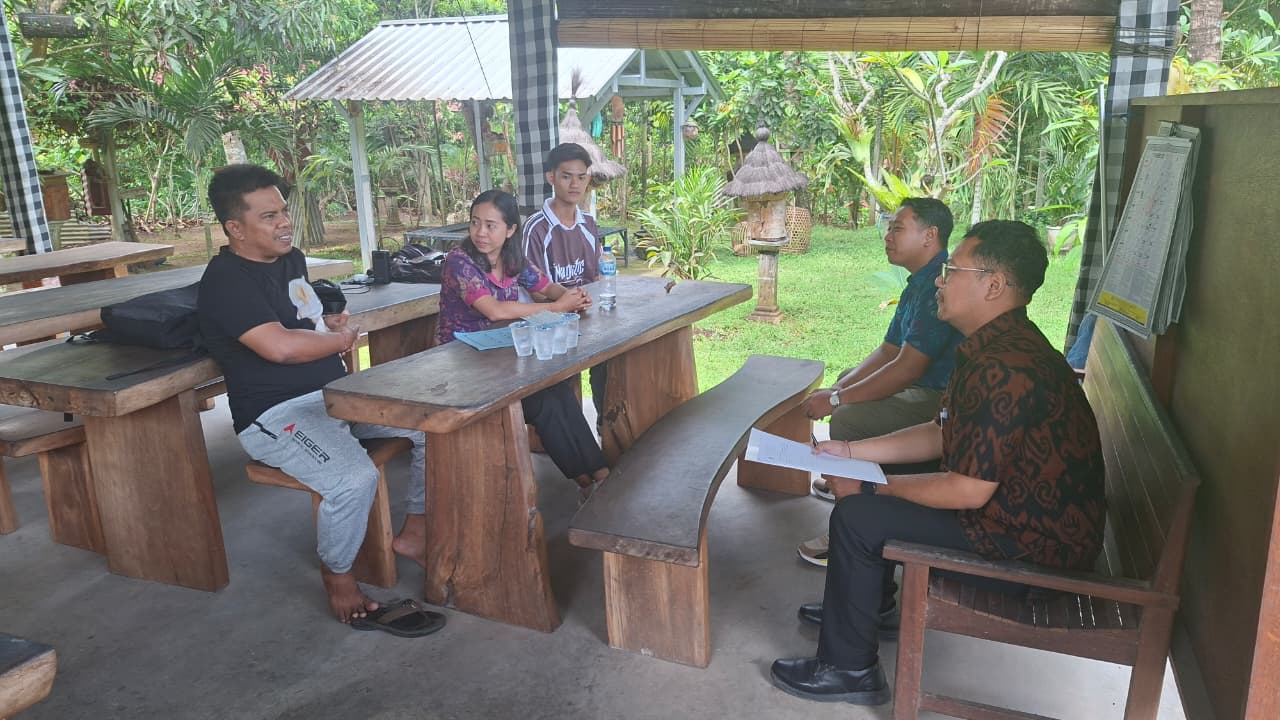Faculty of Animal Husbandry Unud Holds Workshop on Re-Orientation of Supporting Curriculum for MBKM Undergraduate Animal Husbandry Study Program
In an effort to prepare for the new semester for the odd 2022/2023 academic year, Fapet Unud held a Workshop on Re-Orientation of Supporting Curriculum MBKM for the Undergraduate Study Program of Animal Husbandry, Faculty of Animal Husbandry, Udayana University. The activity was held on Tuesday, July 12, 2022 at AA Building, 3rd floor, Faculty of Animal Husbandry, Udayana University, Jimbaran, Badung. This workshop was opened by the Dean of the Faculty of Animal Husbandry, Udayana University, Dr. Ir. I Nyoman Tirta Ariana, M.S., IPU., and also invited stakeholders or cooperation partners, namely the Department of Agriculture and Food Security of the Province of Bali, BPTP Bali, BPTU-HPT Bali, and Charoen Pokphand Indonesia Tbk. The Dean in his remarks stated that “This activity is an evaluation and sharing process related to the curriculum of the Faculty of Animal Husbandry at Udayana University which has been running so far and determines some changes that are needed to adjust to the results of this workshop. So that later, the Curriculum Re-Orientation Workshop will not be held again, but the next step is to implement the curriculum that has been prepared.”
This workshop was attended by around 70 participants who came from lecturers and partners of the Faculty of Animal Husbandry, Unud. The resource persons in this workshop came from LP3M Udayana University, namely Prof. Dr. Ir. G. P. Ganda Putra, M.P., with the material presented related to Curriculum Re-Orientation to Support MBKM and the Learning Process Assessment System; and the Head of the S1 Study Program in Animal Science and Industry, Faculty of Animal Husbandry, Gadjah Mada University, Ir. Tri Satya Mastuti Widi, S.Pt., M.P., M.Sc., Ph.D., IPM., ASEAN Eng. Based on the presentation of the material presented by the two resource persons, it can be concluded that the implementation of the curriculum to support MBKM activities cannot be carried out independently only from the implementing study program, but requires direct involvement with the partners and stakeholders involved, including the involvement of field assistant lecturers and students. who carry out the activities. Various alternative options to overcome problems that may occur in the implementation of MBKM also need to be considered from now on to facilitate MBKM activities in the future.




UDAYANA UNIVERSITY